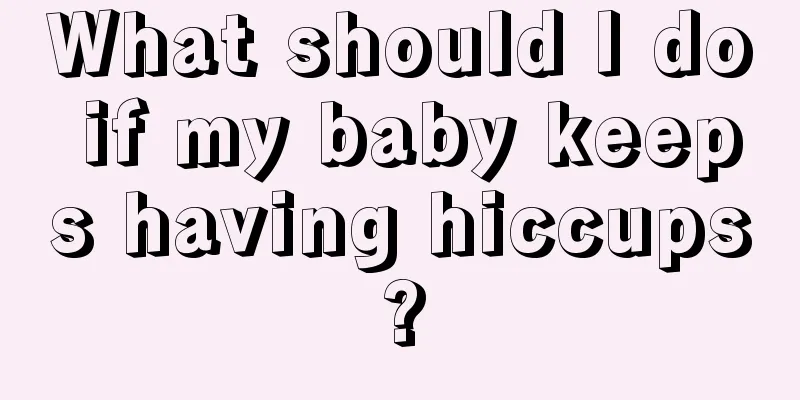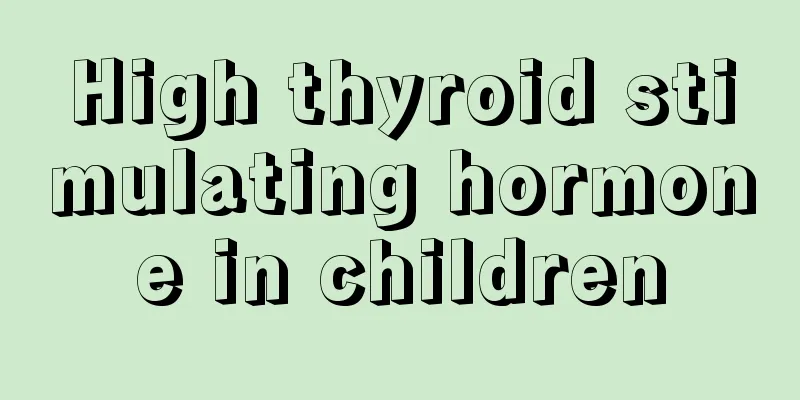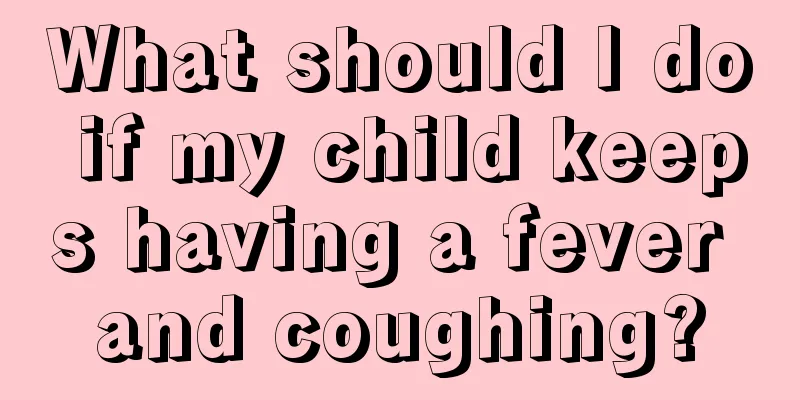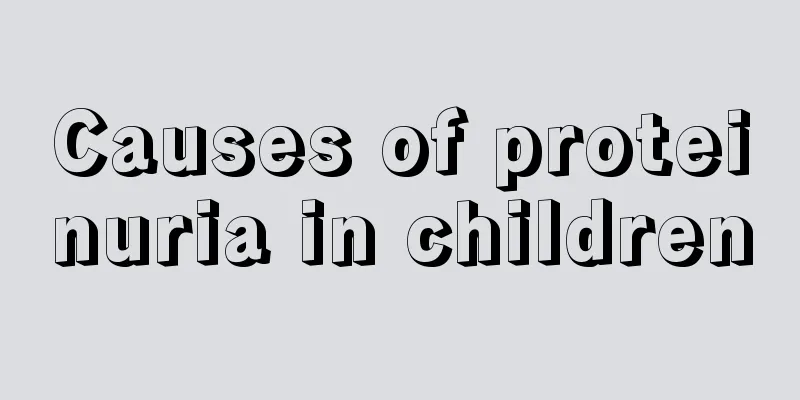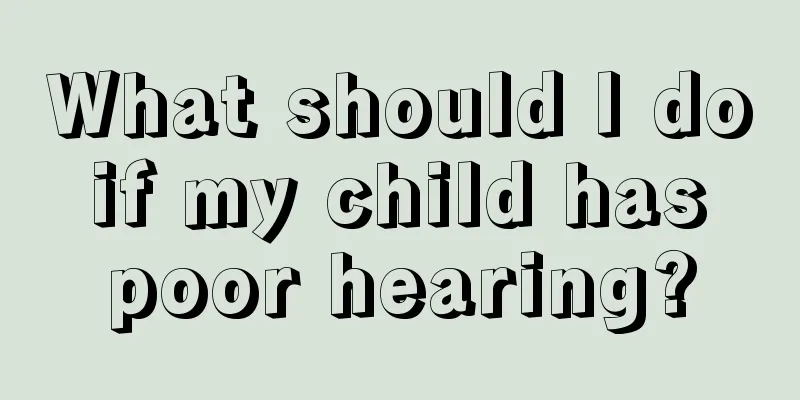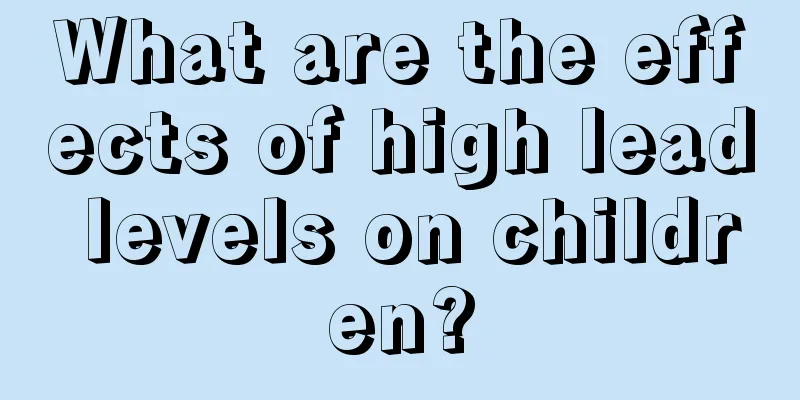What causes babies to hold their breath?
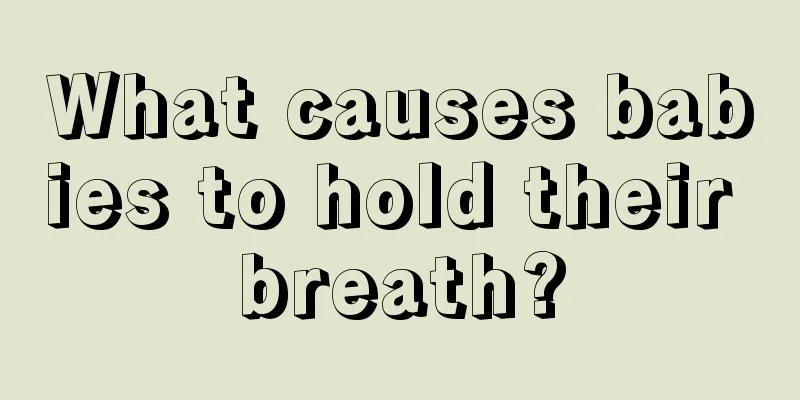
|
While we are infants, our bodies are susceptible to a variety of illnesses. Newborns often experience sudden breath holding within 2 to 20 days after birth. Especially premature babies or small-sized full-term babies. The main symptoms are sudden respiratory arrest, purple face, weak limbs, and even possible respiratory arrest. So what causes this condition? There are several situations. The main reason is that the newborn's brain is immature, and when it encounters cold stimulation or suffers from diseases such as pneumonia, it may experience breath holding. When you hold your breath, the exchange of blood and oxygen in the lungs stops, causing hypoxia in the body. If the hypoxia lasts too long, it may be life-threatening. Therefore, once this phenomenon is discovered, if there is no medical staff present, parents should immediately adopt artificial assisted respiration (place your hands on the child's back, then gently support or put the child down or pat the child's feet at a frequency of about 40 times per minute to stimulate breathing, and pay attention to keeping the room temperature at 26℃~28℃. If there is no improvement after the above treatment or the child frequently experiences breath holding, he or she should be sent to the hospital for treatment immediately. Parents do not need to panic when the child suffers from breath holding attack: it is best to lay the child flat on the bed, unbutton the collar, and keep the airway open; blow gently on the baby's face to reduce brain hypoxia; pat the soles of the feet or back; pinch and press the child's Ren Zhong (the center between the nostrils and the upper lip), Yin Tang (the center between the eyebrows), He Gu (the base of the palms) and other acupoints with your fingers to help the child recover as soon as possible; you can also press the chest to quickly improve hypoxia and help restore breathing. Avoid hugging your child tightly or forcing him or her into a ball, especially around the neck, to avoid the serious consequence of suffocation. In recent years, some scholars have suggested that breath-holding attacks in infants and young children are related to iron deficiency. Clinical tests and control studies found that most children with breath-holding attacks were iron deficient, and after 1-3 months of iron supplementation, the breath-holding attacks completely stopped or the frequency of attacks was significantly reduced, and serum iron indicators returned to normal. The main reason why babies hold their breath is due to stimulation from external factors. Some external factors can cause physical illness and thus this symptom. However, when a baby is holding his breath, there are many treatment methods. Artificial respiration is the most direct one. Parents should always pay attention and send their baby to the hospital for treatment. |
<<: How to deal with concussion in young children?
>>: What can students eat to nourish their brains?
Recommend
What should I do if my child has a fever? Please give your baby enough love
We adults feel very uncomfortable when we have a ...
What should I do if my child has no ambition?
Everyone knows the importance of being motivated....
What are the dietary treatments for infant bronchitis?
Bronchitis is currently still included in the cat...
Do three-month-old babies need to take a bath every day in winter?
When winter comes, the weather becomes very cold,...
What are the methods of making crucian carp soup for 1-year-old babies?
Drinking fish soup regularly is not only good for...
What movements can a 4-month-old baby do?
Every change in the baby after birth is watched b...
What is the reason for the child's yellow hair
Children's dry and yellow hair is mostly caus...
What symptoms does the child have when he comes to see the doctor?
Children are very prone to rashes. If your baby a...
Child cross-eyed
Cross-eyed is what people often call crossed eyes...
Can a five-month-old baby eat pumpkin puree?
Most babies are picky about food, and because the...
Newborn baby eczema on head
Eczema is a very common disease, especially for n...
How much milk does a 100-day-old baby eat?
In some places in China, when babies are born, th...
What should I do if my baby's white eyeballs have red bloodshot?
The eyes are not only the window to the baby'...
Treatment of urinary incontinence in children
Urinary incontinence in children brings great pai...
The child's labia majora is ruptured
In our lives, when many mothers take care of thei...
